Gutters are essential to the structural integrity of your house. They help steer water away from the exterior of your home to help prevent water damage. If you didn’t have gutters, water pouring off the roof can drip on people walking up to your house, or cause damage over time to the foundation of your home because it pools up in low spots.
1. Are Gutters Always A Must?
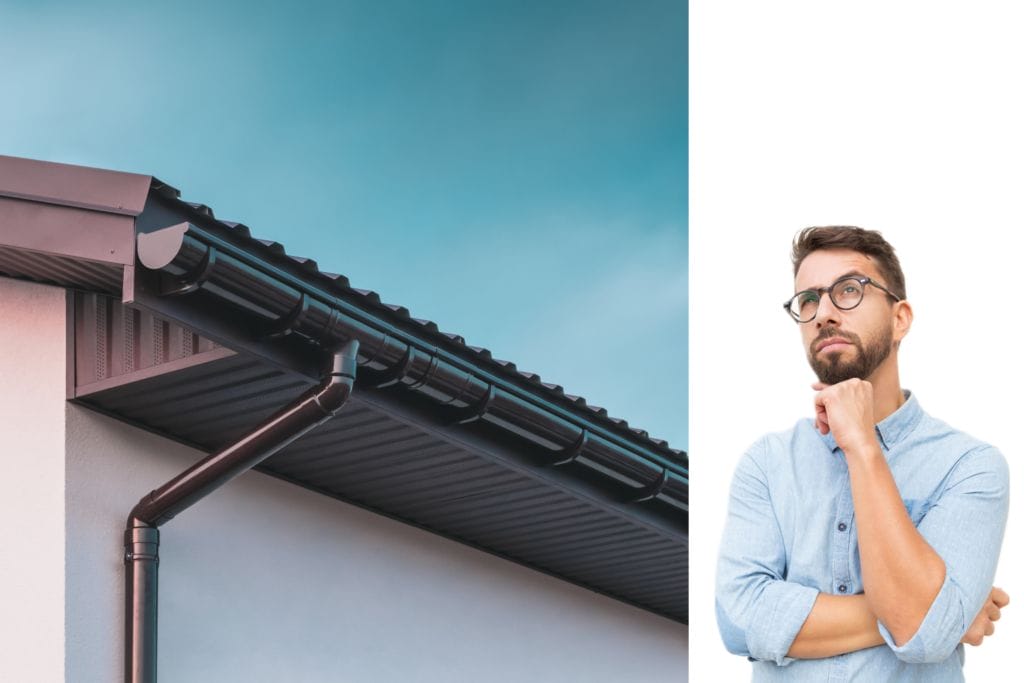
First, figure out if your house really needs rain gutters. Most do, but there are exceptions, so consider the following:
- If your roof has no overhang or only has a few inches of overhang, it’s likely that water will accumulate against the foundation, damage flower beds near the foundation, and/or pour down on people as they enter or exit your home. In this scenario, gutters are a must.
- If your home has a sharply peaked roof with an overhang of 12 inches or more, rainwater will naturally tend to cascade out and away from the house, rather than dripping straight down to the ground to puddle against the foundation. In this case, gutters may not be necessary.
- If your house is higher than the surrounding landscaping, water is unlikely to pool around the foundation, making gutters optional. But if the house is slightly lower than the surrounding ground, gutters are required to channel runoff a sufficient distance from the foundation.
- If your house is completely surrounded by concrete in the form of patios, walkways, or driveways, rain gutters might be optional, as the concrete serves as a protective layer between the runoff and the foundation.
- If you live in a very arid climate, you might opt-out of installing rain gutters.
2. How Long Do Gutters Last?
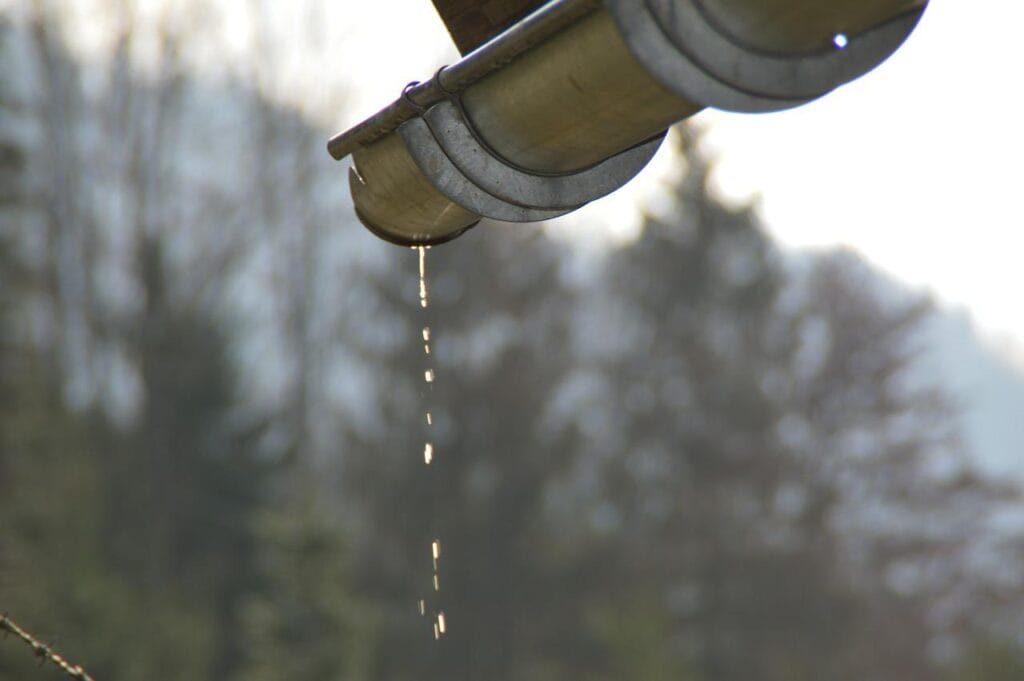
The good news is that gutters can last anywhere from 20 to 50 years, or even up to 100 years in some rare cases.
The exact length of time gutters last depends on several factors…
a. Materials Used
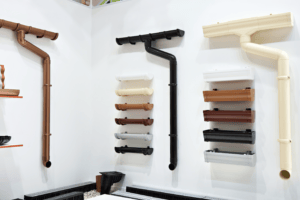
Gutters come in a variety of materials, including copper, aluminum, galvanized steel, and vinyl. According to the National Association of Home Builders, the lifespan of gutters depends on the type of materials they’re made with.
- Copper: 50+ years (downspouts 100+ years)
- Vinyl: 25 years
- Aluminum: 20 years (downspouts 40 years)
- Galvanized Steel: 20 years
It’s important to discuss your gutter options with us to determine what the best option is for your home.
b. Professional Installation
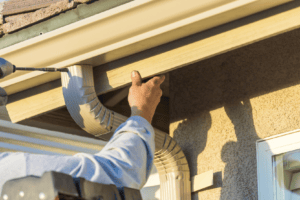
There are plenty of home improvement projects, such as landscaping and painting, that you can tackle on your own, but replacing gutters isn’t one of them. When installed incorrectly, gutters can crack or pull away from the home, making them ineffective at protecting the structure of your house. It’s always best to let the professionals handle the job.
When it comes to answering the question “How long do gutters last?,” professionally installed gutters typically last years longer than DIY projects. Working with experienced gutter installers can help you save both time and money in the long run.
c. Regular Maintenance
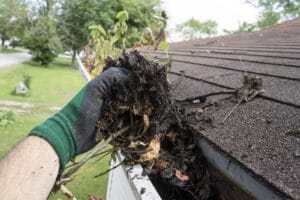
Proper maintenance is also a crucial element in ensuring your gutters last longer. Most roofing experts recommend cleaning your gutters at least two to four times a year, depending on how many trees you have in your yard. Fortunately, there are effective gutter guard systems available today that can eliminate the need for seasonal cleaning.
3. Is It Time To Replace Your Gutters?
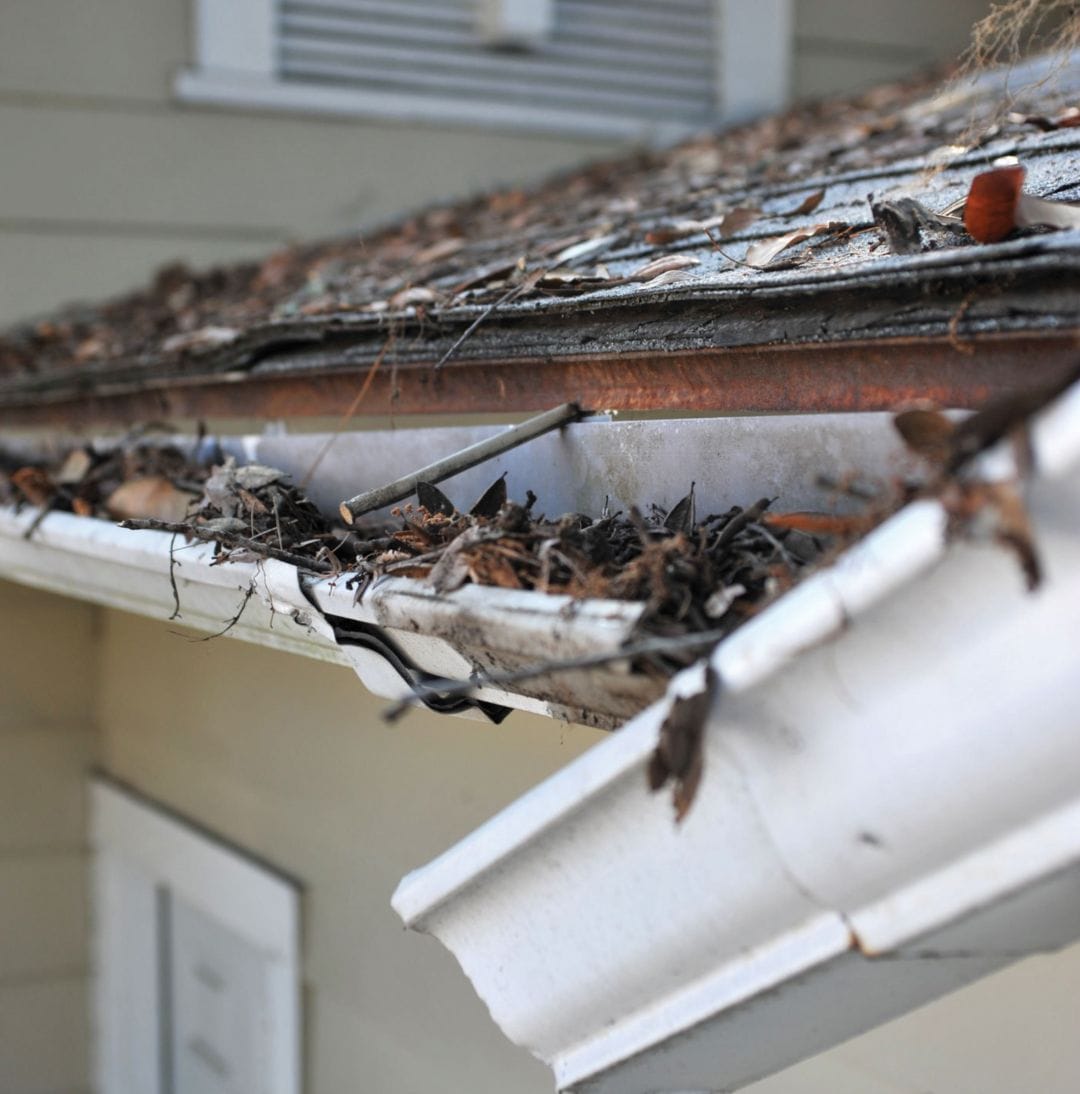
One of the easiest ways to tell if it’s time to replace your gutters is to take a walk around your home in the rain. If you notice any cracks or leaks, or if your gutters are overflowing or not flowing at all, it’s likely time to replace your gutters. Sagging gutters, nearby watermarks, and chipping paint around the gutters also point to the need for gutter replacement.
You may also want to invest in replacing gutters to complete an exterior home remodeling project, improve the property value, or eliminate the need for regular gutter cleaning.
4. What Types of Gutters Are Available?
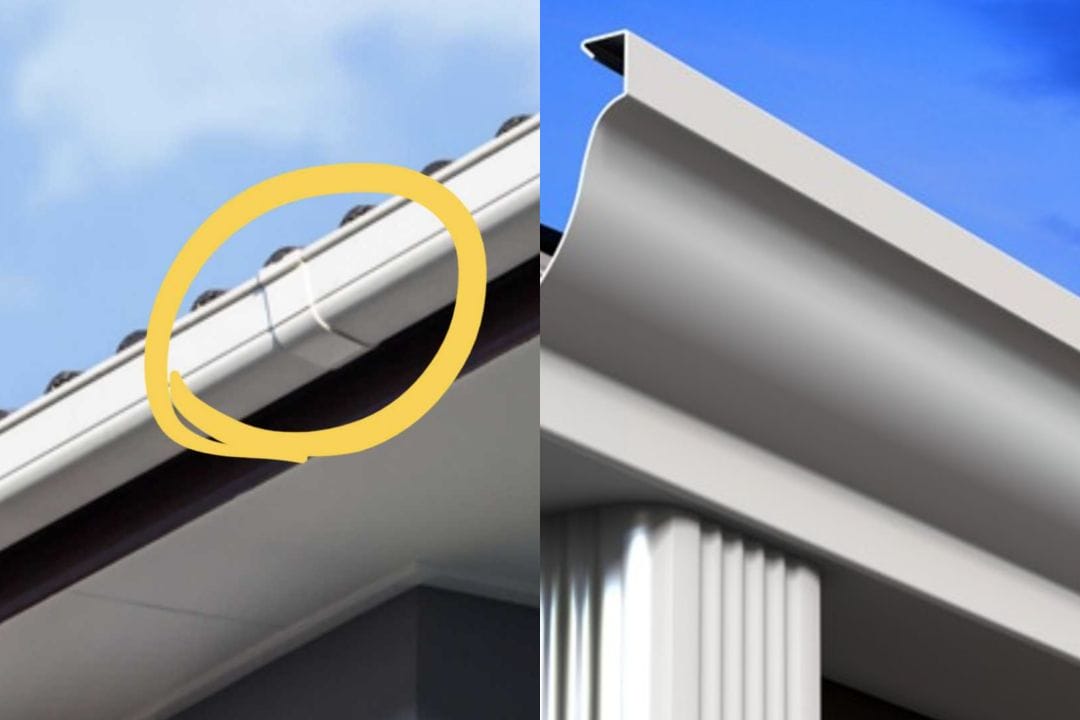
In addition to different types of gutter materials, there are two basic styles of gutters: seamed and seamless. Today, seamless gutters are by far the most popular option. The lack of seams in these gutters reduces the risk of leaf and debris buildup.
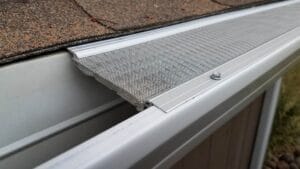
You can also opt for a gutter guard system. These gutter systems include a hood over the gutter that filters out leaves and other types of debris known to cause blockages or clogs.
Additionally, you can select from a wide range of colors for your new gutters. This allows you to find a color that matches or complements your home’s exterior.
If you found this post helpful, comment below! If you have any questions or want to set up a free estimate on your next project, give us a call!
Call Now!
